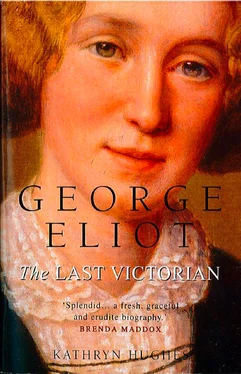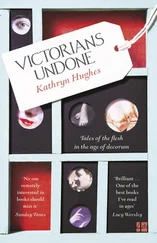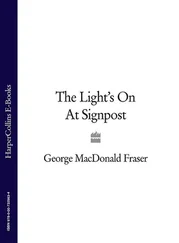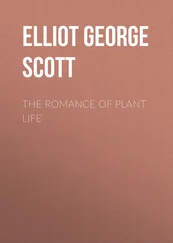Those conflicts concerned the what and how of daily faith. As she continued her careful comparison of the different denominations, Mary Ann’s sympathies began to shift and broaden. By March 1840, she could read a book by the Anglo-Catholic William Gresley and find herself ‘pleased with the spirit of piety that breathes throughout’. In the same letter she mentions with approval three of the most celebrated texts of the High Church Oxford Movement – Oxford Tracts, Lyra Apostolica and The Christian Year . The last of these became a particular favourite, and several of her letters now quoted the ‘sweet poetry’ of its author John Keble, the kind of thing which only eight months earlier she would have characterised as the work of Satan. 3
Mary Ann was also reading widely in the natural sciences. The elaborate geological metaphor she had used despairingly to Maria Lewis to describe the random contents of her mind suggests that she was well acquainted with Charles Lyell’s Principles of Geology , the work which paved the way for Darwin’s implicit questioning of Genesis. Now, when she came across a book like The Doctrine of The Deluge , which attempted to sustain the scriptural account of the beginning of the world, she found it ‘allusive and elliptical’ where once she would have treated it as Gospel. 4
Maria Lewis could hardly fail to pick up the clues that Mary Ann was moving away from the Evangelicalism which had sustained their friendship during the past ten years. If she had not taken account of the drift in her former pupil’s reading matter, she surely noticed a new tone in her letters. Although not necessarily less pious, they were shorter, lighter and not so inclined to quote from the Bible. A few months earlier Martha Jackson had signified her secession from intellectual competition with Mary Ann by assigning them both flower names and retreating into the language of conventional letter writing. Now Mary Ann, armed with her own flower name dictionary, dubbed Maria Lewis ‘Veronica’, meaning ‘fidelity in friendship’, and showered her with sugary declarations of love. Instead of the sober and stilted greetings with which she had used to open her letters, she employed the kind of arch flourish associated with young ladies’ correspondence: ‘Your letter this morning, my Veronica, was sweet to me as the early incense of the Jasmine, and sent a thrill from my heart to my finger ends that impels them at the risk of indigestion, to employ the half hour after dinner, being the only one at liberty, to thank you for the affection that same letter breathes.’ 5
But the fulsomeness of the tone calls attention to the lack of real feeling it is trying to conceal. Interspersed with these overblown protestations of love were alarming, and surely intentional, hints that Maria was no longer the emotional centre of her life. By May 1841 Mary Ann had moved from Griff to the outskirts of Coventry, and was keen to let Maria know that she was busy making new and exciting contacts. In a letter of the 21st she mentions ‘my neighbour who is growing into the more precious character of a friend’. 6 This teasingly unnamed acquaintance was, in fact, Elizabeth Pears, the woman who was to introduce Mary Ann to the circle of people who would replace Maria as her confidante. For Miss Lewis, now middle-aged and soon to be out of a job, it must have felt as if every anchor in her life was being pulled away.
As the power balance between the two women shifted, their roles polarised. Maria became the junior member of the partnership, asking Mary Ann for advice about where she should look for work next. Mary Ann, in return, slipped easily into the role of advice-giver, discouraging Maria from running a school of her own by citing a whole string of horrors including ‘rent, taxes, bad debts, servants untrustworthy, scarlet fever, panic of parents, imposing tradesmen’. 7 Instead, she promised she would look out for a position in a private household for Maria, and even asked Signor Brezzi if he knew of a family that needed a governess. But when a possible situation did present itself in May 1841, Mary Ann took the opportunity to drop hints to Maria about the change in her own religious opinions.
Of course in Mr. W’s family perfect freedom of thought and action in religious matters would be understood as an unquestioned right, but as education, to be such, implies aggression on supposed error of every kind and incubation of truth it is probable you would not choose to put yourself in a position apparently requiring the anomalous conditions of neutrality and command. It is folly to talk of educating children without giving their opinions a bias. This is always given whether weak or strong, not always nor perhaps in a large proportion of cases, a permanent one, but one instrumental in determining their point of repose. 8
The message is coded, though easily unpicked. In matters of religious faith, Mary Ann supports the principle of ‘perfect freedom of thought and action’ in preference to Maria’s assumed desire to stamp out ‘supposed error of every kind’. She finishes with an oblique warning that while Maria may have used her authority as a governess to shape Mary Ann’s early religious views, her former pupil is now beginning to think for herself.
Throughout the summer of 1841 Mary Ann’s letters to Maria continue in this contradictory fashion. Elaborate pledges of affection are followed by hurtful snubs. On 12 August she declared, ‘How should I love to join you at Margate now that you are alone!’ before bewailing the fact that ‘I have no one who enters into my pleasures or my griefs, no one with whom I can pour out my soul, no one with the same yearnings the same temptations the same delights as myself.’ 9 How wounding to the woman who had spent the last decade as Mary Ann’s chief confidante. How could the girl claim that she had no one who understood her? What were these ‘yearnings’ and ‘temptations’ which separated them? Once again, Mary Ann realised she had gone too far, adding disingenuously, ‘Pray regard all I have written as cancelled in my own mind.’ 10 But Maria could not. She wrote back anxiously demanding reassurances that nothing had changed. The response she got was inflatedly insincere, declaring, ‘Yes, I firmly believe our love is of a nature not to be changed by place or time.’ 11 Maria, by now rattled, countered with ‘a very ambiguous reply’ and suggested that it might not be a good idea for her to visit at Christmas. Mary Ann did her best to sound reassuring in her next letter, but actually came across as evasive, skidding off into a description of the glorious autumn weather. 12 Then, on 16 October 1841, she gave the clearest indication yet that something was different, if not actually wrong. In an abrupt postscript on that day she writes, ‘May I call you Maria? I feel our friendship too serious a thing to endure even an artificial name. And restore to me Mary Ann.’ 13 Despite her reasoning that a return to their real names reinstated the dignity of the friendship, it sounded more as if Mary Ann wanted to withdraw from a correspondence which had become a bore.
But turning Veronica back into Maria did not have the desired effect. Far from easing up on her demands for reassurance, Maria redoubled her anxious enquiries to know exactly what was going on. Exasperated by her growing revulsion for the older woman, on 23 October Mary Ann let loose with a brutal letter, conspicuously lacking the respect due to a former teacher.
You are veritably an overreaching friend, my dear Maria, not content with my scribbling a couple of sheets to every quarter of the moon, you even insist on dictating the subjects of the same, and the one you now impose on me is at once so sterile, so incomprehensible and so unfascinating that I should be quite justified in refusing to descant thereon . If you complain that my letters become increasingly illegible, just take into consideration the necessary effect of having to write a few pages almost daily. This has been the case with me of late, and I am likely to be more and more busy, if I succeed in a project that is just now occupying my thoughts and feelings. 14
Читать дальше












